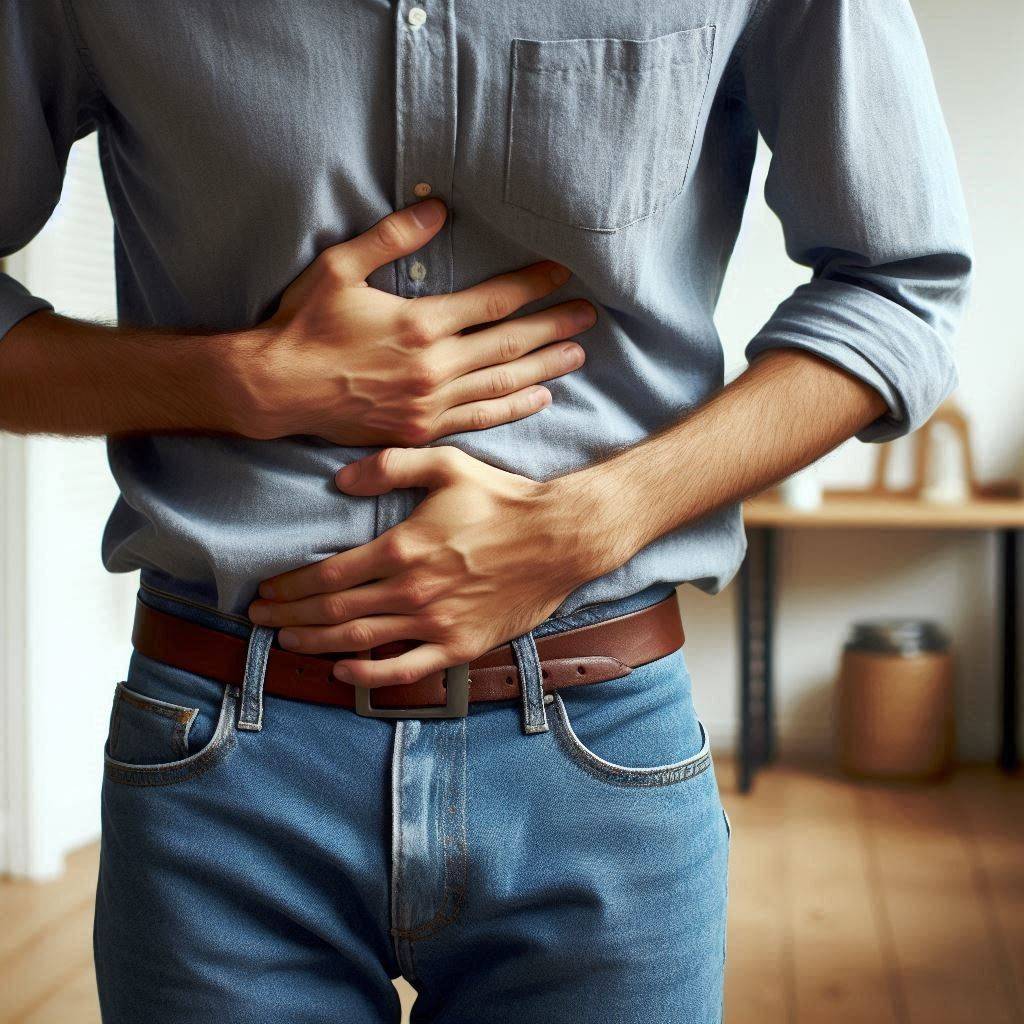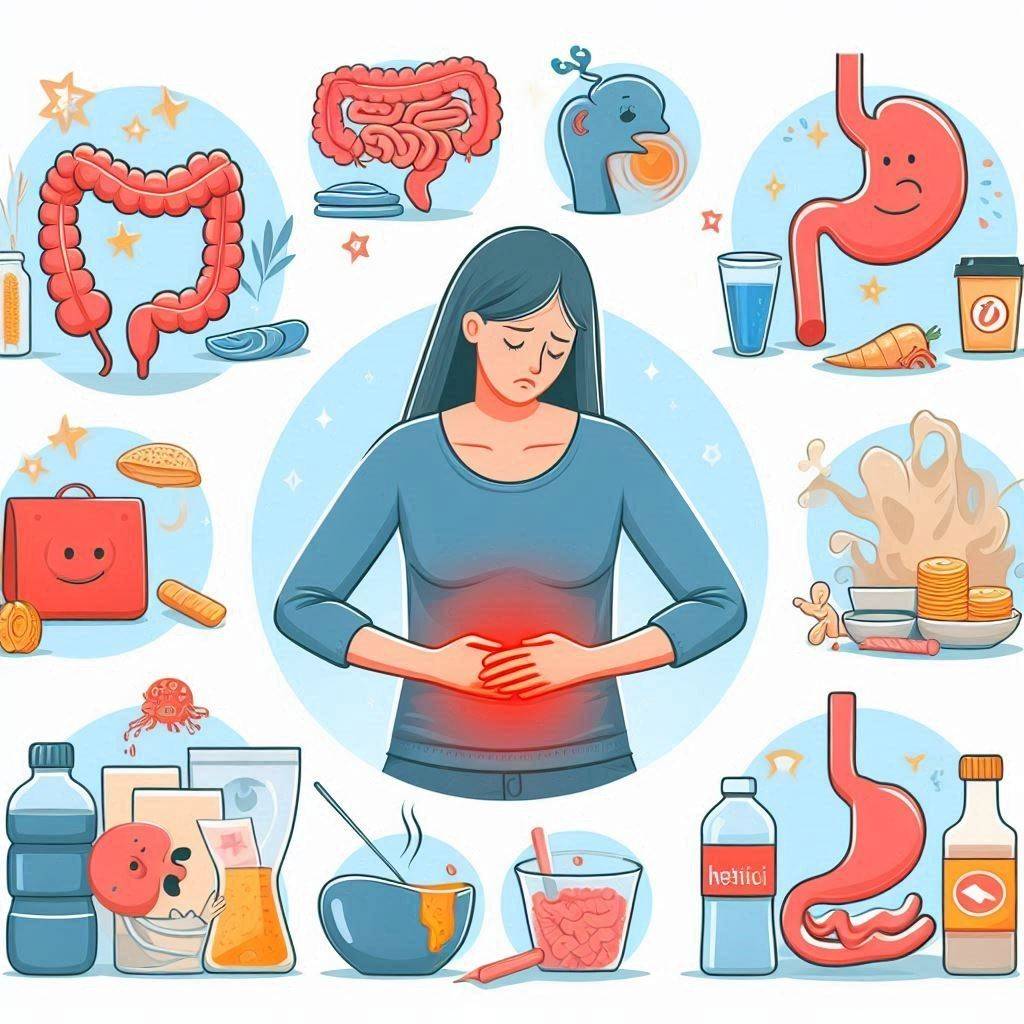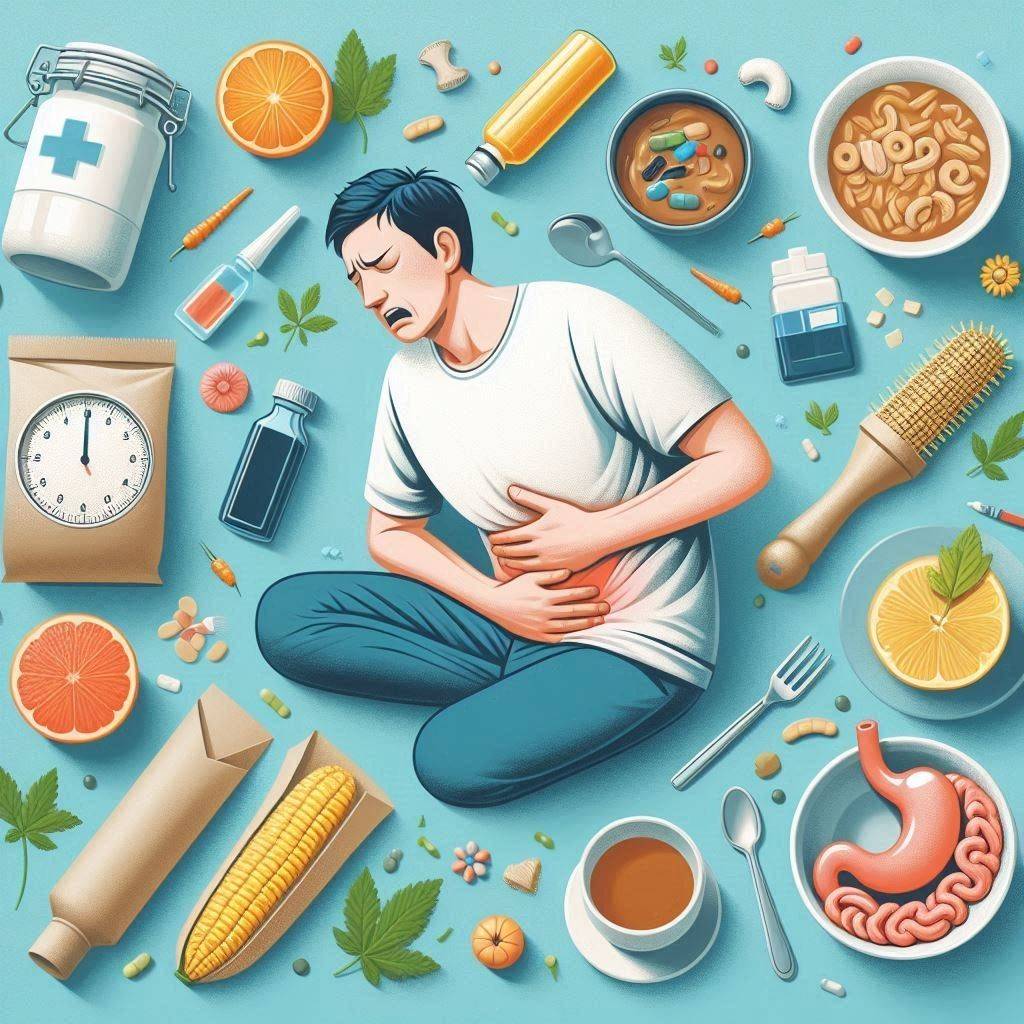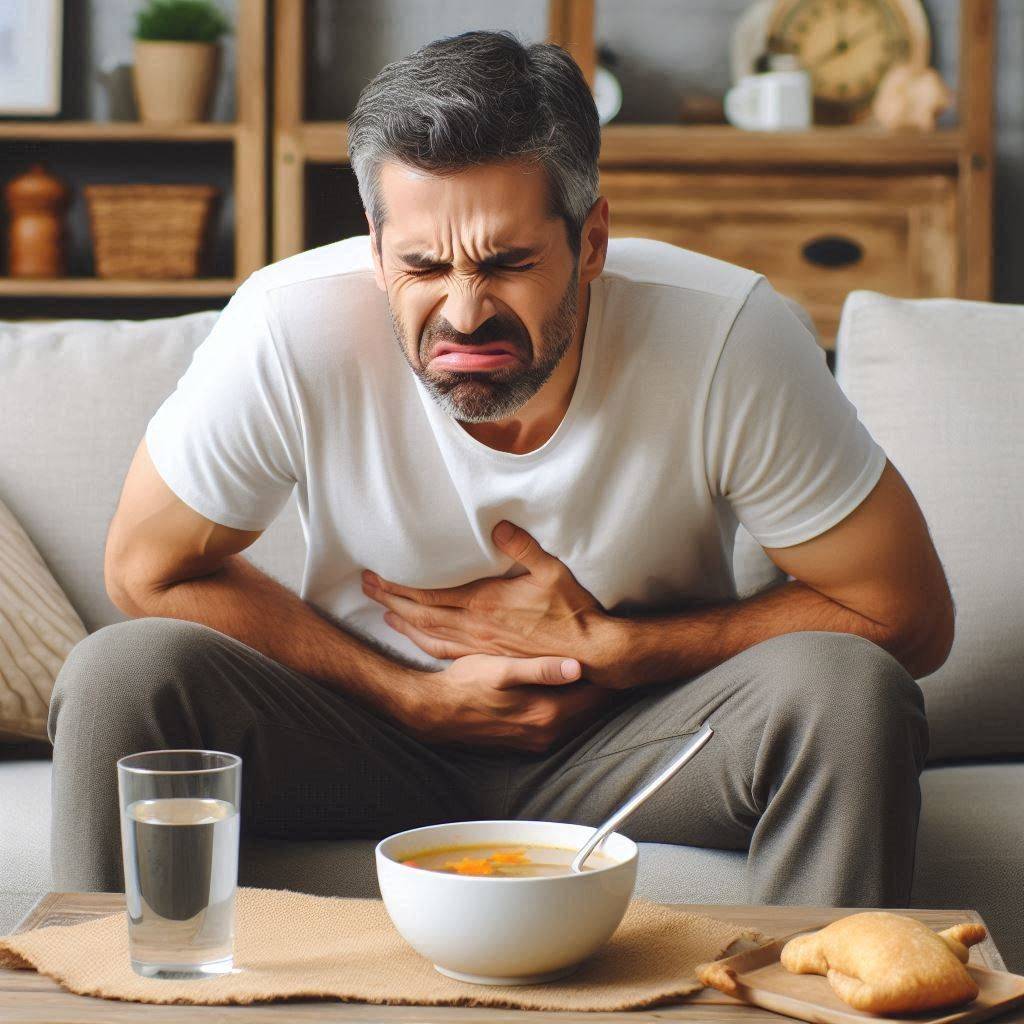Stomach Gurgling Pain Diarrhea: 10 Causes and 15 Quick Relief Tips
Discover the causes of stomach gurgling pain diarrhea, plus quick relief tips. Learn when to seek medical help and how to manage symptoms effectively.
Quick Guide
- Common causes: food intolerances, infections, stress
- Quick relief: stay hydrated, try BRAT diet, use heat therapy
- When to see a doctor: severe pain, bloody stools, high fever
- Prevention: proper hygiene, balanced diet, stress management
Understanding Stomach Gurgling Pain Diarrhea

Stomach gurgling pain diarrhea are a combination of symptoms that can significantly affect your daily life. As someone who has experienced these symptoms firsthand, I know how uncomfortable and disruptive they can be. Let’s break down each component:
- Stomach gurgling: Also known as borborygmi, these are the rumbling sounds your stomach makes.
- Pain: This can range from mild discomfort to sharp pain in the abdominal area.
- Diarrhea: Loose, watery stools occurring more frequently than normal.
When these symptoms occur together, they can be particularly distressing. In my experience, the gurgling often precedes the pain and diarrhea, acting as an early warning sign of digestive distress.
10 Common Causes of Stomach Gurgling Pain Diarrhea

Understanding the root cause of your stomach gurgling pain diarrhea is crucial for effective treatment and prevention. As someone who has dealt with these symptoms numerous times, I’ve researched extensively and consulted with healthcare professionals to compile this comprehensive list of common causes. Let’s dive into each one:
- Food Intolerances
Food intolerance can be a major trigger for stomach gurgling pain diarrhea. The two most common culprits I’ve encountered are:
- Lactose Intolerance: If you lack the enzyme lactase, consuming dairy products can lead to digestive distress.
- Gluten Sensitivity: Some people react poorly to gluten, a protein found in wheat, barley, and rye.
In my case, I discovered I had a mild lactose intolerance. Switching to lactose-free milk and reducing my intake of cheese significantly reduced my symptoms.
- Viral Gastroenteritis (Stomach Flu)
Often mistakenly called “stomach flu,” viral gastroenteritis is a common cause of stomach gurgling pain diarrhea. It’s caused by viruses like norovirus or rotavirus. Symptoms typically include:
- Watery diarrhea
- Abdominal cramps
- Nausea or vomiting
- Sometimes fever
I once contracted norovirus at a buffet restaurant. The gurgling started about 12 hours after eating, followed by intense cramping and diarrhea. It was a miserable 48 hours, but staying hydrated helped me recover.
- Bacterial Infections
Bacterial infections can cause severe stomach gurgling pain diarrhea. Common culprits include:
- Salmonella: Often from undercooked poultry or eggs
- E. coli: Can be found in contaminated water or undercooked ground beef
- Campylobacter: Frequently from raw poultry
I once experienced a bout of salmonella poisoning from an undercooked chicken dish. The symptoms were like viral gastroenteritis but lasted longer and were more severe.
- Irritable Bowel Syndrome (IBS)
IBS is a chronic condition affecting the large intestine. It’s characterized by:
- Abdominal pain
- Bloating
- Alternating constipation and diarrhea
- Mucus on the stool
I have a friend who manages her IBS through diet and stress reduction techniques. She’s found that certain foods, particularly those high in FODMAPs, trigger her symptoms.
- Inflammatory Bowel Disease (IBD)
IBD includes conditions like Crohn’s disease and ulcerative colitis. These are more serious than IBS and can cause:
- Severe abdominal pain
- Persistent diarrhea
- Blood on the stool
- Weight loss
While I don’t have personal experience with IBD, I’ve learned a lot about it through a support group I volunteer with. The impact on quality of life can be significant, but modern treatments have greatly improved outcomes.
- Stress and Anxiety
The gut-brain connection is powerful. Stress and anxiety can manifest as physical symptoms, including:
- Stomach gurgling
- Abdominal pain
- Diarrhea or constipation
I’ve experienced this connection firsthand. During particularly stressful periods at work, my digestive system becomes much more sensitive, often leading to gurgling and loose stools.
- Medications
Certain medications can upset your stomach and cause stomach gurgling pain diarrhea. Common culprits include:
- Antibiotics: Can disrupt your gut bacteria balance
- NSAIDs (like ibuprofen): Can irritate the stomach lining
- Metformin (for diabetes): Often causes digestive side effects
When I was prescribed antibiotics for a throat infection, I experienced significant digestive upset. Taking probiotics alongside the antibiotics helped mitigate these effects.
- Parasitic Infections
While less common in developed countries, parasitic infections can cause severe stomach gurgling pain diarrhea. Examples include:
- Giardia
- Cryptosporidium
- Entamoeba histolytic
During a backpacking trip in Southeast Asia, I contracted giardiasis. The persistent diarrhea and abdominal cramps were debilitating until I received proper treatment.
- Gallbladder Issues
Problems with your gallbladder, such as gallstones or inflammation, can lead to digestive symptoms, including:
- Upper right abdominal pain
- Nausea
- Diarrhea after eating fatty foods
A family member recently had their gallbladder removed due to recurring issues. They reported significant improvement in their digestive symptoms post-surgery.
- Pancreatic Problems
The pancreas plays a crucial role in digestion. Issues like pancreatitis can cause:
- Severe abdominal pain
- Nausea and vomiting
- Oily, smelly stools (steatorrhea)
While I haven’t experienced pancreatic issues personally, I’ve learned about their impact through educational materials at my local hospital’s gastroenterology department.
Understanding these causes has helped me better manage my digestive health and recognize when it’s time to seek medical help. Remember, persistent or severe symptoms always warrant a visit to a healthcare professional.
15 Quick Relief Tips for Stomach Gurgling Pain Diarrhea

When you’re experiencing stomach gurgling pain diarrhea, finding relief quickly becomes a top priority. Over the years, I’ve tried numerous remedies and consulted with healthcare professionals to find the most effective relief methods. Here are 15 tips that I’ve found particularly helpful:
- Stay Hydrated
Proper hydration is crucial when dealing with diarrhea to prevent dehydration. I recommend:
- Water: Sip slowly and continuously throughout the day
- Clear broths: Provide both hydration and some nutrients
- Electrolyte solutions: Like a plate, to replace lost minerals
I always keep electrolyte powder packets in my travel kit. They’ve been a lifesaver during bouts of traveller diarrhea.
- Try the BRAT Diet
The BRAT diet (Bananas, Rice, Applesauce, Toast) is gentle on the stomach and can help firm up stools. Here’s why each component helps:
- Bananas: Rich in pectin, which helps absorb liquid in the intestines
- Rice: Easy to digest and can help firm stools
- Applesauce: Provides pectin and is easy on the stomach
- Toast: The bland, dry nature can help absorb excess acid in the stomach
When I’m dealing with stomach issues, I find the BRAT diet incredibly soothing. I usually start with just toast and gradually introduce the other elements as I start feeling better.
- Peppermint Tea
Peppermint has natural antispasmodic properties, which can help relieve stomach cramps and reduce gas. To make peppermint tea:
- Steep 1 tsp of dried peppermint leaves in hot water for 5-10 minutes
- Strain and sip slowly
I always keep peppermint tea bags in my pantry. The soothing warmth combined with the minty flavour provides quick relief for my upset stomach.
- Ginger
Ginger is known for its anti-inflammatory and anti-nausea properties. You can consume it in various forms:
- Ginger tea: Steep fresh ginger slices in hot water
- Ginger capsules: Available at most health food stores
- Candied ginger: A tasty way to get the benefits
- Probiotics
Probiotics help restore the balance of good bacteria in your gut. You can get them from:
- Yogurt with live cultures
- Kefir
- Probiotic supplements
I’ve found that taking a high-quality probiotic supplement daily helps maintain my digestive health and reduces the frequency of stomach issues.
- Heat Therapy
Applying heat to your abdomen can help relax muscles and reduce cramping. Try:
- A heating pad
- A hot water bottle wrapped in a towel
- A warm bath
When I’m experiencing abdominal cramps, 15-20 minutes with a heating pad often provides significant relief.
- Avoid Trigger Foods
During a bout of stomach gurgling pain diarrhea, it’s important to avoid foods that can irritate your digestive system:
- Dairy products (if lactose intolerant)
- Spicy foods
- Fatty foods
- Caffeine and alcohol
I’ve learned to be particularly cautious with spicy foods when my stomach is sensitive. Even if I’m feeling better, I reintroduce these foods gradually.
- Rest
Giving your body time to heal is crucial. Try to:
- Get plenty of sleep
- Take time off work if possible
- Avoid strenuous activities
I’ve found that trying to “push through” stomach issues often prolongs the symptoms. Taking a day to rest usually speeds up my recovery significantly.
- Gentle Exercise
While rest is important, some light movement can help stimulate digestion:
- Take a slow walk around your neighbourhood
- Practice gentle yoga poses like child’s pose or cat-cow
A 10-minute walk around the block often helps relieve my bloating and gas when I’m dealing with stomach issues.
- Over-the-Counter Medications
Certain OTC medications can provide relief:
- Loperamide (Imodium): Helps reduce diarrhea
- Simethicone: Relieves gas and bloating
- Bismuth subsalicylate (Pepto-Bismol): Helps with diarrhea and nausea
I always keep a small supply of these medications in my home first aid kit for digestive emergencies.
- Chamomile Tea
Chamomile has a natural calming effect on the digestive system. To prepare:
- Steep a chamomile tea bag in hot water for 5-10 minutes
- Sup, especially before bedtime for better sleep
I find chamomile tea particularly soothing before bed when stomach issues are keeping me awake.
- Stress Reduction Techniques
Since stress can exacerbate digestive issues, try these relaxation methods:
- Deep breathing exercises
- Progressive muscle relaxation
- Mindfulness meditation
I’ve incorporated a 10-minute mindfulness practice into my daily routine, which has helped reduce my stress-related digestive symptoms.
- Avoid Caffeine and Alcohol
Both caffeine and alcohol can irritate your digestive system and worsen diarrhea. Instead, try:
- Herbal teas
- Water with lemon
- Coconut water
Switching to herbal teas when I’m experiencing stomach issues has made a noticeable difference in my recovery time.
- Eat Small, Frequent Meals
Instead of three enormous meals, try eating smaller portions more frequently throughout the day. This can help:
- Reduce the workload on your digestive system
- Prevent overwhelming your stomach
- Keep your blood sugar stable
I’ve found that eating 5-6 small meals instead of 3 large ones helps me manage my digestive symptoms more effectively.
- Try a Low-FODMAP Diet
If you suspect IBS, a low-FODMAP diet might help. This involves avoiding certain types of carbohydrates that can trigger symptoms. Some low-FODMAP foods include:
- Eggs
- Meat
- Certain fruits like bananas and oranges
- Certain vegetables like carrots and potatoes
While it’s challenging to follow, I’ve seen friends with IBS experience significant improvement in their symptoms by adopting a low-FODMAP diet under the guidance of a dietitian.
Remember, while these tips can provide relief, persistent or severe symptoms always warrant a visit to a healthcare professional. Everyone’s body is different, so what works for one person may not work for another. It’s important to listen to your body and find the combination of remedies that works best for you.
I’ve found that combining hydration with the BRAT diet and heat therapy works wonders for me. However, everyone’s body is different, so you may need to experiment to find what works best for you.
When to Seek Medical Help
While many cases of stomach gurgling pain diarrhea resolve on their own, there are times when you should seek medical attention. Based on my experience and research, here are the red flags:
- Severe persistent abdominal pain
- Blood on your stool
- High fever (over 102°F or 39°C)
- Signs of dehydration (dark urine, dizziness, rapid heartbeat)
- Symptoms lasting more than a few days
- Recent travel to an area with poor sanitation
- Unexplained weight loss
Remember, it’s always better to err on the side of caution for your health. I once ignored persistent symptoms and ended up with a more serious condition that could have been treated earlier.
Prevention Strategies for Stomach Gurgling Pain Diarrhea
Prevention is always better than cure. Here are some strategies I’ve adopted to reduce the frequency of these uncomfortable symptoms:
- Practice Good Hygiene: Wash your hands frequently, especially before eating.
- Cook Foods Thoroughly: Particularly meats and eggs.
- Manage Stress: Regular exercise, meditation, or therapy can help.
- Stay Hydrated: Drink plenty of water throughout the day.
- Eat a Balanced Diet: Include fiber-rich foods and probiotics.
- Identify and Avoid Trigger Foods: Keep a food diary to spot patterns.
- Travel Smart: Be cautious with water and food in unfamiliar places.
- Get Regular Check-ups: Especially if you have recurring symptoms.
By implementing these strategies, I’ve significantly reduced my episodes of stomach gurgling pain diarrhea. It’s all about being proactive and listening to your body.
FAQs About Stomach Gurgling Pain Diarrhea
Q: Why is my stomach gurgling and I have diarrhea?
A: Stomach gurgling pain diarrhea often occurs because of digestive upset. Common causes include viral or bacterial infections, food intolerances, or changes in diet. The gurgling sound (borborygmi) is caused by the movement of fluids and gases in your intestines, which can be more noticeable when you have diarrhea.
Q: When should I be concerned about stomach pain and diarrhea?
A: While occasional stomach gurgling pain diarrhea is common, you should be concerned if you experience severe, persistent pain, bloody stools, high fever, signs of dehydration, or symptoms lasting more than a few days. These could indicate a more serious condition requiring medical attention.
Q: Why am I pooling water and my stomach hurts?
A: Watery stools accompanied by stomach pain are typical symptoms of stomach gurgling pain diarrhea. This can be caused by infections (viral or bacterial), food poisoning, or conditions like IBS. The body is flushing out irritants quickly, resulting in loose, watery stools. Staying hydrated is crucial during this time.
Q: Why do I have a sharp pain in my stomach and loose stools?
A: Sharp stomach pain with loose stools can be symptoms of stomach gurgling pain diarrhea and may indicate various conditions. It could be because of food poisoning, gastroenteritis, or more chronic conditions like IBS or IBD. If the pain is severe or persistent, it’s important to consult a healthcare provider for proper diagnosis and treatment.
Conclusion
Dealing with stomach gurgling pain diarrhea can be challenging, but with the right knowledge and strategies, you can manage symptoms effectively and even prevent future episodes. Remember to listen to your body, stay hydrated, and don’t hesitate to seek medical help when needed. Your gut health is a crucial part of your overall well-being, so take care of it!
Thank you for reading this comprehensive guide on stomach gurgling pain diarrhea. I hope you’ve found it helpful and informative.
Recommended Reading:
- How to Heal Your Gut: Enhancing Your Digestive Health
- Calm the Storm: 19 Powerful Stress Reduction Techniques
- 20 Eating Healthy Habits: Your Path to Lasting Health

Adel Galal is a health and wellness writer with over 30 years of experience studying and writing about health, fitness, nutrition, and healthy living. He is the founder of NextFitLife.com, where he shares practical, evidence-based guidance to support long-term health at any age. Adel’s mission is simple:
to help people make smarter health choices that fit real life, at any age.



